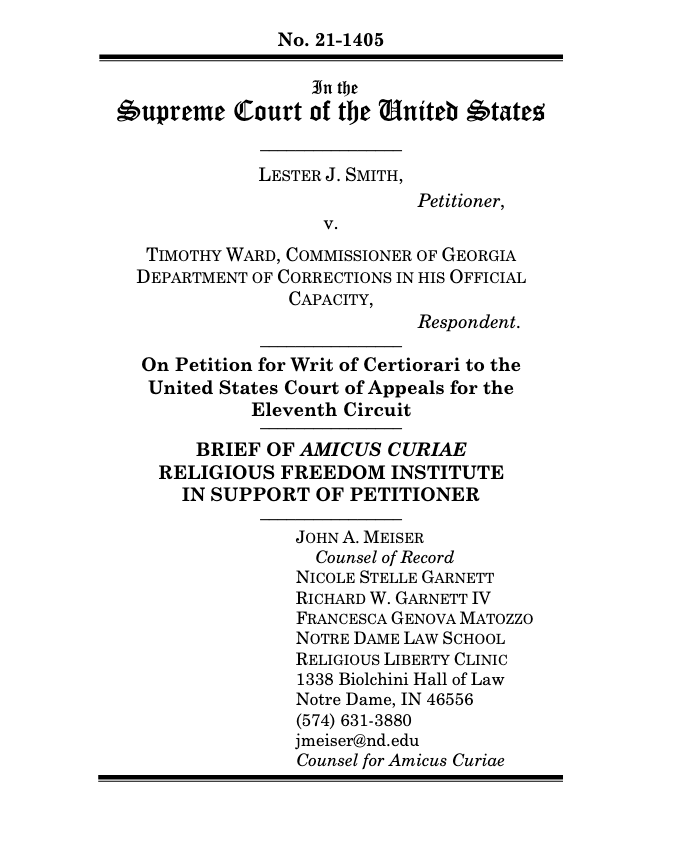All people, including those who are incarcerated, have a fundamental right to live in accordance with their religious beliefs. RFI partnered with the Notre Dame Law School’s Religious Liberty Clinic to file this amicus brief in support of a petition asking the U.S. Supreme Court to reverse the U.S. Court of Appeals for the Eleventh Circuit’s decision in Smith v. Ward. In Smith v. Ward, a Muslim man named Lester Smith, who is incarcerated in Georgia, has been fighting the state prison system for more than 10 years for permission to wear a full-length beard as his faith requires. The trial court found that under the Religious Land Use and Institutionalized Person Act, Georgia could not justify its strict ban on beards longer than half an inch in prison. However, the U.S. Court of Appeals for the Eleventh Circuit ruled against Smith and vacated a partial remedy the district court had awarded to him, which would have allowed him to grow a beard up to three inches long. See also this RFI blog article on this brief.
RFI position: Smith’s religious exercise demands more than he was awarded by the district court, and he continues in his effort to vindicate those full demands. But if Smith does not succeed in that effort, he is at least entitled to partial relief. The Eleventh Circuit’s denial of that relief, as a matter of law will severely impair courts’ ability to remedy burdens on religious freedom in the way that RLUIPA and RFRA demand.
Read the amicus brief here.
THE RFI BLOG

Myths of Religious Nationalism in America and Abroad

France’s Olympic Hijab Ban Violates International Law And Exacerbates Tensions

RFI Briefs USCIRF on Lessons from 25 Years of U.S. Designating Religious Freedom Violators

Thought Police: Protecting the People from Prayer

A Religious “Delaware”: Establishing a State Haven for Religious Corporations
CORNERSTONE FORUM

Challenges to Religious Freedom in Iraq and the Critical Need for Action

Public Bioethics & the Failure of Expressive Individualism

Religious Liberty in American Higher Education

Scotland’s Kate Forbes and the March of Secularism


